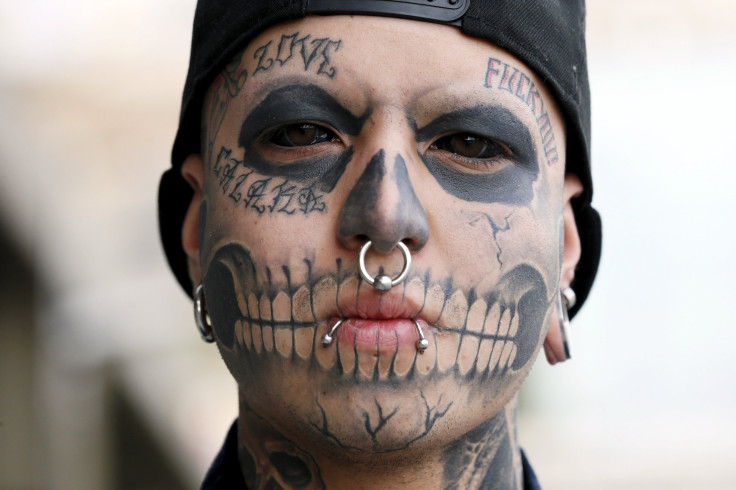Eyeball tattooing: Australia’s only eyeball tattoo artist says banning the extreme art is politically motivated

New South Wales Opposition has called for a ban on eye tattoos after the Baird Government recently regulated its practice by bringing eyeball tattooing under the same legislation as piercing and regular tattooing. The Opposition said eyeball tattooing, also known as eyeball inking, was included in a number of health amendments enacted last Friday.
However, Australia's only practising eyeball tattooist, who goes by the name Luna Cobra, believes calls by the Labor to ban eyeball tattooing is just a political move and has nothing to do with protecting people. Cobra believes that eyeball tattooing is safer than smoking and drinking.
Walt Secord, Labor’s Health spokesman, has called the decision by the Baird Government a “major stuff up” that would endanger Australians’ health. He lashed out at the state government on Tuesday for its decision, stating the government has given the green light to a practice that is extremely dangerous.
However, the technique of eyeball tattooing, which involves injecting ink into the white part of the eyeball to permanently change its colour, has been practiced by Cobra to current safety standards for more than 10 years. Reports suggest that that the technique of eyeball tattooing can cause blindness if not carried out properly.
“Any reports of a link between cancer and eyeball tattoos is [sic] only speculation and this has never been reported since I started this in 2007. The demand is very low, less then 10 people across Australia... about one eye per year,” Cobra told AAP.
He added that “the politician” simply wants to see his name in the newspaper and has no concern on the health of Aussies. Secord, according to Cobra, is simply kicking fuss at any local pop culture news,.
Secord, however, believes it is a very dangerous procedure and legalising it means that the Baird Government has got its priorities wrong.
“This is not like ear piercing, this has major health risks and the quality of the dye brings concerns of the possibility of cancer, but also there's the risk of blindness. It's a completely irresponsible practice and I have no idea why the Baird Government would want to regulate or legalise this procedure,” said Secord.





















